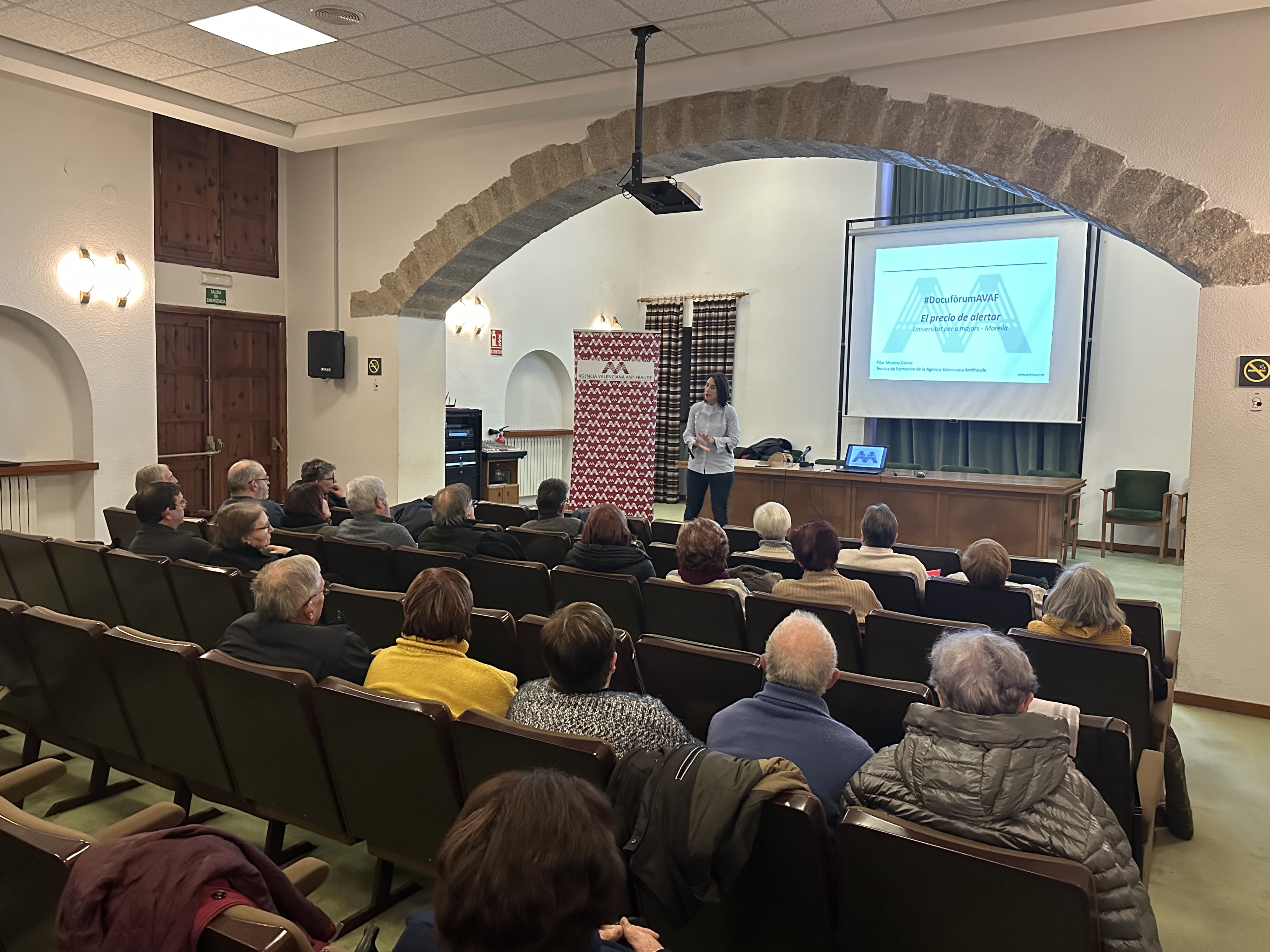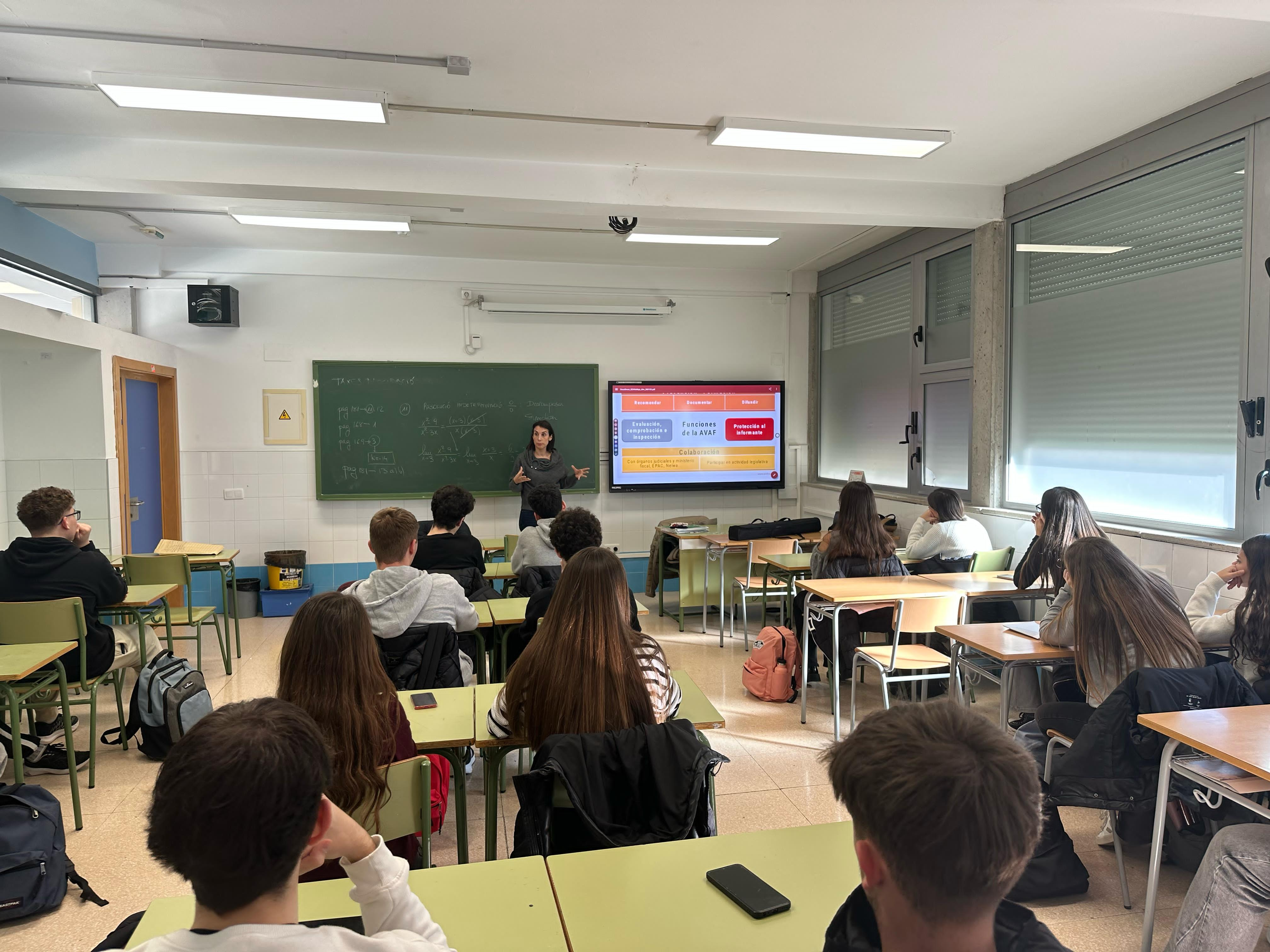The AVAF brings the culture of integrity to Morella with the help of the University for the Majors of the UJI
Morella, February 3, 2025. The University for Majors of the Morella Campus of the UJI hosted an intense debate on the importance of public integrity. The 28 participants reflected and discussed key issues such as conflict of interest, risks of fraud and corruption in public procurement and people management.
This programme of the Universitat Jaume I de Castellón seeks to bring knowledge closer to society and promote continuous learning throughout life.
Pilar Moreno, training technician of the Valencian Anti-Fraud Agency, visited Morella on Monday, February 3 to give a session within the subject Basic notions of Local Law for citizens, directed by Professor Jaime Clemente, from the Department of Constitutional Law of the UJI.
With this initiative, the AVAF Training Area reaffirms its commitment to raising awareness and training citizens in integrity and corruption prevention, promoting effective and transparent public management.
If you wish to have specialized training in integrity and corruption prevention in your public institution, do not hesitate to write to formación@antifraucv.es









